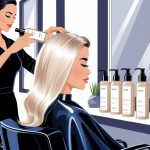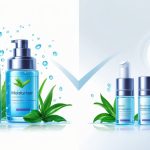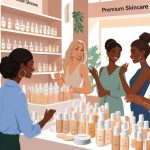New Sunscreen Label Warnings Dermatologists Urge You to Check Now
Myths and Misconceptions About Sunscreen Labels
Labels are a mess. “Broad spectrum,” SPF numbers everywhere, “blocks everything” claims. Derms roll their eyes every summer. Nobody’s decoding this during a Target run. Most of my friends use expired sunblock from the glove box. “Water resistant” or “sunblock” on the label doesn’t mean you’re safe.
SPF Myths Debunked
People wave around SPF 100 like it’s a force field. It’s not. Dr. Melanie Dixon (Mayo Clinic) says SPF 50 blocks 98% of UVB, SPF 100 blocks 99%. Big deal? Not really. Every derm I know says reapply every 2 hours, but the bottle hides that in tiny print.
Everyone forgets about UVA. “Broad spectrum” matters for that. Some people grab “sport” or “kids” thinking it’s stronger—not true. Mineral vs. chemical? Reddit’s obsessed, but if you’re not using enough (shot glass, again), it doesn’t matter. Last year’s tube? Toss it. Every source says expired sunscreen doesn’t work, but the warning is microscopic.
Truth About ‘Sunblock’ vs. Sunscreen
If I see “sunblock” on a label again, I might scream. Nothing blocks everything. Even zinc lets some rays through. FDA doesn’t like the word, but Amazon sellers love it. Sunscreen absorbs or scatters, that’s it. “Broad spectrum” is the only thing I trust.
I once wasted an hour comparing mineral and chemical in the drugstore. Brands mix both, even in “mineral” lines. Dr. Nkem Ugonabo says avobenzone isn’t the same as zinc, so check the ingredients, not the “natural” hype. “Water resistant” isn’t waterproof, just another FDA rule. My derm says ignore “sunblock” and flip the bottle for the active list and “broad spectrum.” That’s the only way to avoid marketing nonsense.
Frequently Asked Questions
Honestly, who can keep up with sunscreen rules? Nobody likes reading fine print with sticky hands. Sunburned nose at urgent care? Somehow worse. Derms keep sending me scary stats about skin cancer, so I’m finally listening.
What new warnings should I look for on sunscreen labels?
“Waterproof” is gone—FDA banned it. Only “water resistant,” for 40 or 80 minutes, shows up now. That timer runs out fast at the pool.
Labels shout “broad spectrum” now—UVA and UVB, FDA approved. If a bottle claims “instant protection,” that’s just marketing. Ignore it. Derms say skip anything under SPF 30 if you’re actually in the sun.
How do dermatologists recommend choosing sunscreen for the face?
Face sunscreen? Never just one tube. Some Houston derm mocked my coconut-scented SPF 15. She said non-comedogenic, “broad-spectrum” is good (EltaMD UV Clear, but price isn’t safety). Matte finish keeps your forehead from blinding people on Zoom. Mineral blockers like zinc oxide work for sensitive skin, but only if you actually rub it in. Everyone forgets ears.
Are there any health risks associated with using sunscreen daily?
Every few months, a headline panics about chemical sunscreen in the bloodstream (2024 WebMD, anyone?). Derms say the benefits crush the risks. My own derm uses herself as a guinea pig and laughs at conspiracy theories.
Allergic reactions or breakouts? Probably fragrance or preservatives. No proof daily use causes cancer or hormone drama. Skipping sunscreen, though? That’s risky.
What sunscreen options do dermatologists advise for full-body protection?
Anything under SPF 30 and you’re toast. “Broad-spectrum, water-resistant, SPF 30+”—derms say it on repeat. Spray, stick, cream—whatever you’ll actually use. In Arizona, resort staff hand out blobs of SPF 50 and it’s always ghostly white.
Physical blockers like zinc oxide and titanium dioxide are for sensitive skin, but they’re thick. The “shot glass” rule for full-body? Nobody does it, but that’s what all the cancer sites recommend.
Can using sunscreen have an impact on skin cancer rates?
Okay, so, sunscreen. Is it saving lives or just making us all sticky and paranoid? My cousin’s dermatologist—who, by the way, seems to have an endless stash of CDC handouts—swears regular sunscreen slatherers get fewer melanomas. I mean, maybe, but nobody in my family actually believes it until someone’s mole gets hacked off and everyone panics for a week. MD Anderson? They crank out these “broad spectrum = less skin cancer” web pages like it’s their side hustle, but honestly, who reads those? Repetition doesn’t make it gospel.
And let’s get real: you’re not safe just because you never did the whole tanning-oil-on-the-roof thing. I know people who never left their car without SPF and still ended up with that weird leathery left arm. Every nurse I’ve met over 50 points at their own “truck-driver’s elbow” like it’s a badge of sun shame. Sunscreen isn’t some invisible force field—wish it was—but apparently, if you actually use it (like, every day, not just on beach trips) and start before you’re old enough to know better, your odds get better. Or so they say. Who’s really tracking this?
What are the benefits and risks of skipping sunscreen according to experts?
So, yeah, sunlight helps your body make vitamin D, but let’s not pretend it’s the miracle cure your aunt’s Facebook group keeps shouting about. I’ve grilled like, way too many dermatologists on this (honestly, sorry to all of them), and they keep rattling off the same stuff: you’ll get wrinkles before you want them, weird little sun spots, maybe even some DNA going haywire, and eventually, someone’s slicing off a suspicious mole while humming along to the radio. Radiation just sort of… does its thing, even when it’s cloudy and you think you’re safe.
Meanwhile, my neighbor—who claims he’s immune to sunburn—insists he looks “totally fine,” but if you’ve ever seen those UV photo aging charts at the clinic, you know that’s a lie we tell ourselves. Fine lines, splotchy pigment, all that fun stuff. Is there a real reason to skip sunscreen? I can’t find one that actually makes sense, unless you count “forgetting the tops of your feet” as a lifestyle choice. And who remembers those, honestly?



